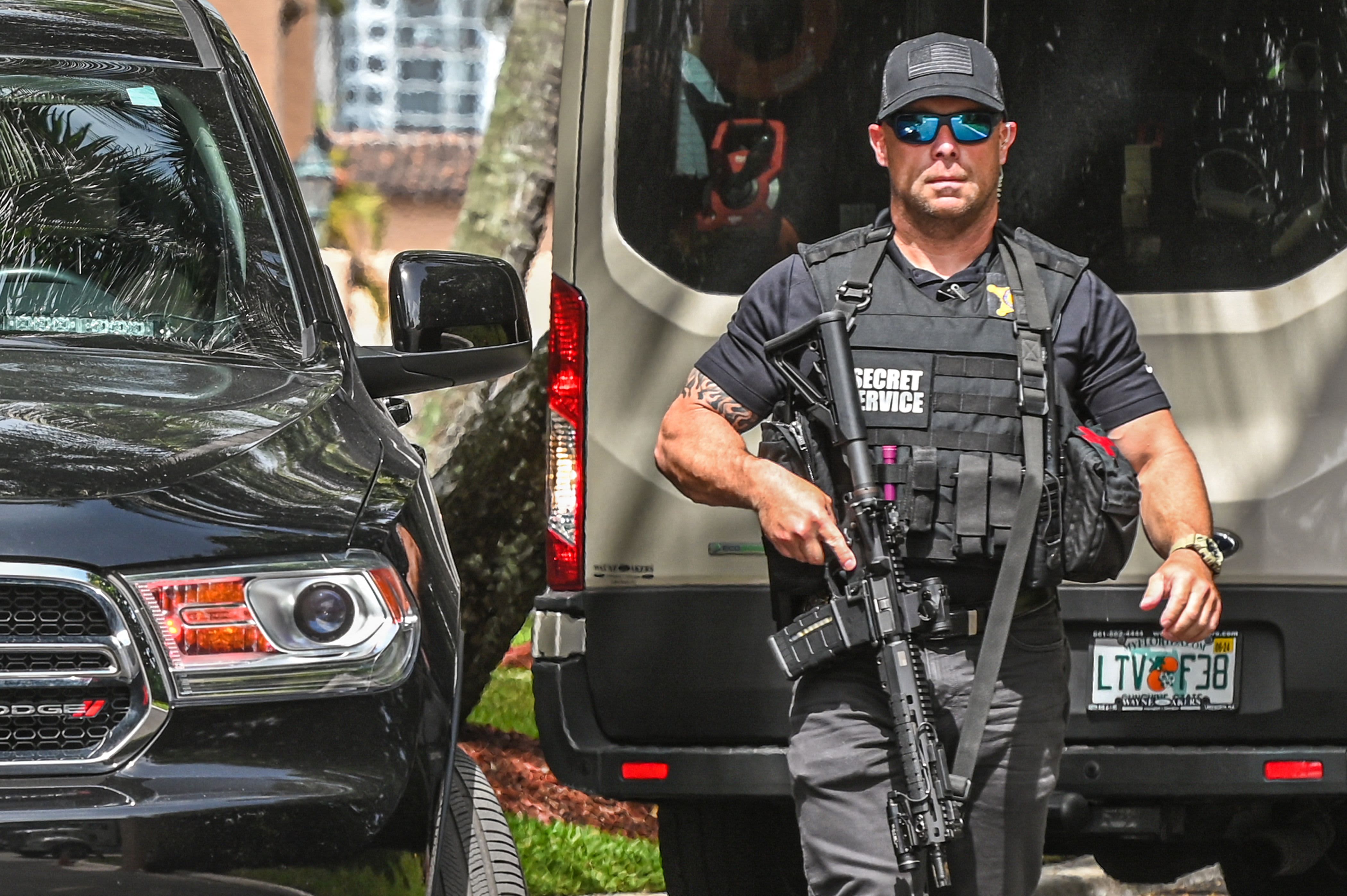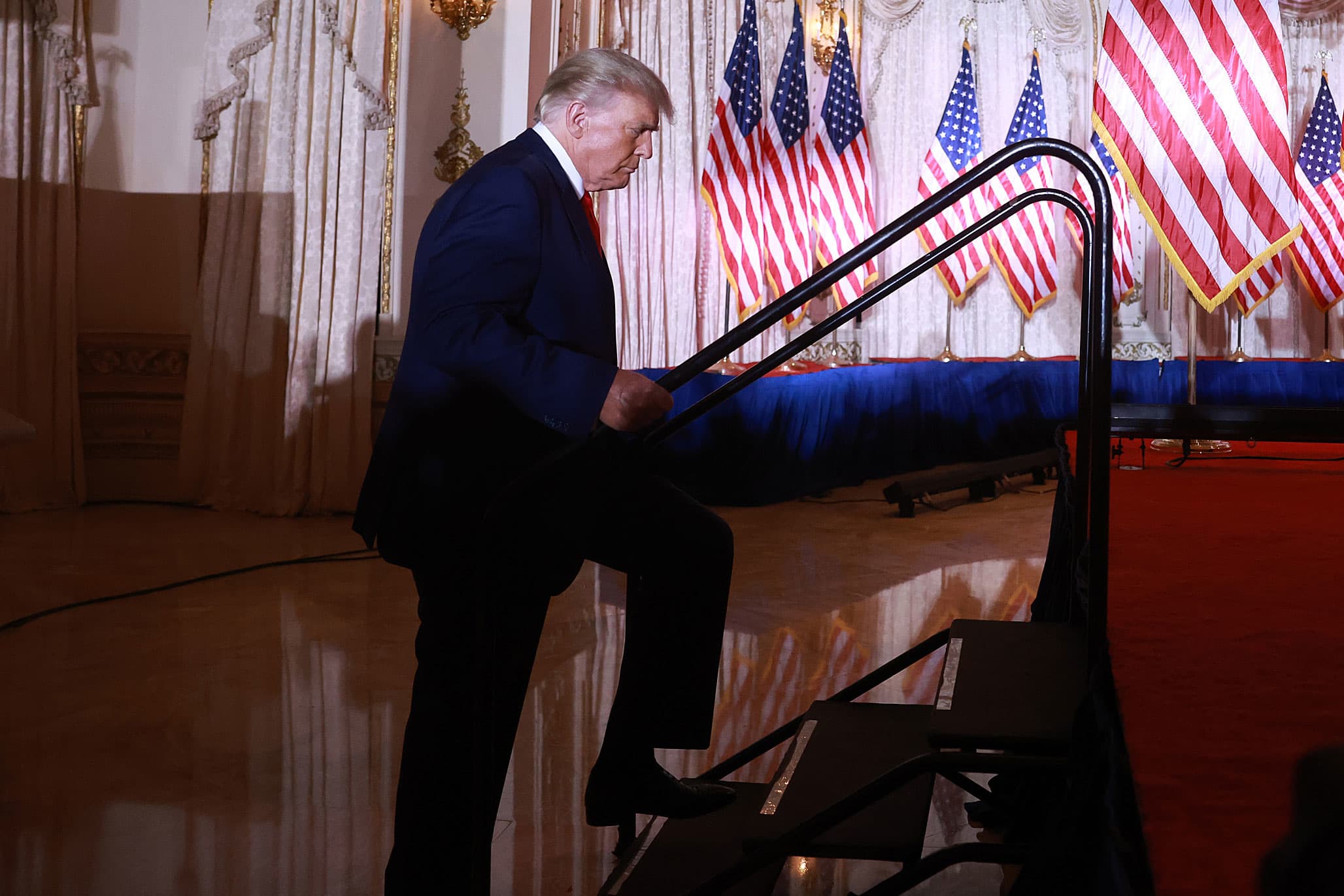Donald Trump “knew exactly what was going on” with top Trump Organization executives who schemed for years to dodge taxes on company-paid perks, a prosecutor said Thursday, challenging defense claims that the former president was unaware of the plot at the heart of the company's tax fraud case.
Manhattan prosecutor Joshua Steinglass lobbed the bombshell allegation during closing arguments. He promised to share more details when he resumes on Friday, buoyed by the judge’s decision to grant prosecutors permission to veer into territory that had been considered off-limits because Trump is not on trial.
The tax fraud case is the only trial to arise from the three-year investigation of Trump and his business practices by the Manhattan district attorney’s office. Thursday’s closing arguments were the last chance for prosecutors and defense lawyers to sway jurors before they deliberate next week.
Judge Juan Manuel Merchan, overruling a defense objection after the jury had left court, said the company's lawyers opened the door by asserting in their closing arguments that Trump was ignorant of the scheme, hatched by his longtime finance chief just steps from his Trump Tower office.
Get DFW local news, weather forecasts and entertainment stories to your inbox. Sign up for NBC DFW newsletters.
“It was the defense who invoked the name Donald Trump numerous times," Merchan said, setting up a potentially explosive final day of arguments before jurors deliberate next week.
Prosecutors had given mixed signals about Trump’s importance to the case, telling a judge early on, “this case is not about Donald Trump,” but then repeatedly asking witnesses about him; showing a witness copies of Trump's tax returns and, ultimately, seeking to connect the dots to him in closing arguments.
Trump has denied any knowledge of the scheme, writing Tuesday on his Truth Social platform: “There was no gain for ‘Trump,’ and we had no knowledge of it.”
Steinglass said the Trump Organization “cultivated a culture of fraud and deception” by lavishing luxe perks on executives and falsifying records to hide the compensation.
Steinglass' at-times fiery summation followed defense arguments that sought to focus blame for the fraud on Allen Weisselberg, the senior adviser and ex-CFO who has admitted scheming to avoid paying personal income taxes on a company-paid apartment, luxury cars and other goodies.
“Weisselberg did it for Weisselberg," Trump Organization lawyer Michael Van der Veen told jurors, punctuating his closing argument with the defense team’s mantra for the monthlong trial.
Steinglass pushed back when it was his turn, telling jurors: “Both halves of that sentence are wrong. It wasn’t just Weisselberg doing it and it wasn’t just Weisselberg who benefited.”
The Trump Organization — the entity through which Trump manages his real estate holdings and other ventures — is accused of helping Weisselberg and other executives avoid paying income taxes on company-paid perks.
Steinglass argued that the Trump Organization — through its subsidiaries Trump Corp. and Trump Payroll Corp. — is liable because Weisselberg and an underling he worked with, controller Jeffrey McConney, were “high managerial” agents entrusted to act on behalf of the company and its various entities.
If convicted, the Trump Organization could be fined more than $1 million. Manhattan District Attorney Alvin Bragg, who watched Steinglass’ closing from the courtroom gallery, has said that his office’s investigation of Trump is “active and ongoing,” and that no decision has been made on whether to charge him.
But company lawyers argued that Weisselberg was only intending to benefit himself with his tax-dodge scheme, not the Trump Organization, and that the company shouldn’t be blamed for his transgressions.
“We are here today for one reason and one reason only: the greed of Allen Weisselberg,” Trump Organization lawyer Susan Necheles said, her remarks accompanied at one point by the wail of a siren from an emergency vehicle outside.
Weisselberg pleaded guilty in August to dodging taxes on $1.7 million in extras and testified against the Trump Organization in exchange for a promised sentence of five months in jail.
Weisselberg has worked for Trump's family for nearly 50 years, starting as an accountant for his real estate-developer father Fred Trump in 1973 before joining Donald Trump’s company in 1986.
Donald Trump
“Along the way, he messed up. He got greedy. Once he got started, it was difficult for him to stop,” Necheles said.
Necheles argued that the case against the company is tenuous and that the 1965 state law underlying some of the charges requires prosecutors to show Weisselberg intended to benefit the company, not just himself.
Weisselberg testified that he conspired to hide his perks with McConney by adjusting payroll records to deduct their cost from his salary.
The arrangement reduced Weisselberg’s tax liability, while also saving the company money because it didn’t have to give him a hefty raise to cover the cost of the perks and additional income taxes he would have incurred.
“I knew in my mind that there was a benefit to the company,” Weisselberg testified.
But Necheles argued that any benefit to the company was ancillary, minimal and unintentional.
“He is atoning for his sins, but as part of the plea deal, the prosecution forced him to testify against the company he helped build,” Necheles told jurors. “Now the prosecution’s case rests on one thing: convincing you, the jurors, that Mr. Weisselberg’s actions were done in behalf of the company.”
“You are going to see there was no such intent,” Necheles added. “The purpose of Mr. Weisselberg’s crimes was to benefit Mr. Weisselberg.”



